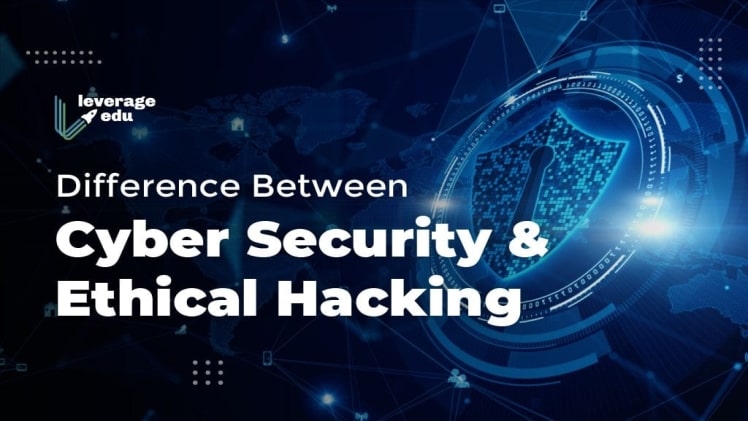What is ethical hacking and how does it function in cybersecurity industry?

Do you know what is ethical hacking? Ethical hacking is a kind of information security that employs the same methods and tools as are used by hostile hackers, but does so with the authorization of an organization and with the intention of identifying and resolving security flaws. Ethical hackers, often known as “white hat” hackers, are those who try to breach the computer systems of an organization while doing so in a controlled and supervised setting. This is done in order to detect any vulnerabilities in the system’s security.
Ethical hacking is a kind of computer hacking that simulates real-world attacks in order to locate and expose security flaws in computer systems before such flaws may be exploited by criminals.
In the context of the cybersecurity industry, the functions of ethical hacking
01. Identifying Vulnerabilities
Ethical hackers use a wide range of methods, such as network scanning, password cracking, and social engineering, to locate security flaws in a system. By locating these vulnerabilities, ethical hackers are able to assist firms in better comprehending the possible repercussions of an assault and taking preventative measures against such assaults.
02. Enhancing the Existing Level of Security
Ethical hacking is a kind of hacking that is done with the intention of improving an organization’s overall security posture. Ethical hackers may identify areas that need improvement and make ideas for repair by simulating an attack. These suggestions may involve actions such as changing password policy, fixing systems, or introducing two-factor authentication.
03. Developing Systems That Are Even More Secure
Ethical hacking course allows businesses to develop more secure systems by identifying flaws and correcting them before they can be exploited by bad actors. This helps organizations construct more secure systems. This may assist in the prevention of data breaches, the protection of sensitive information, and the reduction of the risk of financial losses.
04. Keeping Private Information Secure
The ability of ethical hackers to assist enterprises in the prevention of data breaches is one of the most important advantages of ethical hacking. Organizations are able to lessen the likelihood of a hostile actor getting unauthorized access to sensitive information if they first detect and then address any security flaws they discover.
05. Observance of the Rules and Regulations
There are rules in place across many different sectors that require businesses to employ security measures in order to secure sensitive information. By identifying and repairing holes in an organization’s security, ethical hacking may assist firms in meeting the requirements of these rules.
Advantages of Ethical Hacking for Businesses and Other Organizations
Ethical hacking enables businesses to proactively identify and resolve possible security vulnerabilities, allowing them to do so before those risks may be exploited by bad actors. This results in enhanced security. Ethical hackers may identify weaknesses that would not have been identified if it weren’t for a simulation of a real-world attack and then take measures to protect against those flaws.
01. Cost-Effective
Instead than dealing with the aftermath of a successful attack, it may be more cost-effective to hire a hacker who practices ethical hacking. Organizations may save money on expenses associated with recovery, legal fees, and harm to their reputation if they discover and patch vulnerabilities prior to the possibility that they will be exploited.
02. Independent Assessment
Ethical hackers give an impartial analysis of the security posture of a business. This may be particularly helpful for companies who may have a small security staff working in-house or that are looking for a new perspective on how they should be handling their security operations.
03. Increasing Employee Conscience and Awareness
The practice of ethical hacking may assist in raising employee knowledge of potential security threats. Ethical hackers are able to highlight the hazards of social engineering and other strategies employed by malevolent actors by recreating attacks similar to those that would occur in the real world. Educating personnel and improving the general security culture within a business may both be helped along by this practice.
04. Keeping One Step Ahead of Dangers
The landscape of cybersecurity is in a state of perpetual change, and new dangers are appearing on a regular basis. Organizations may keep one step ahead of possible threats and protect the security of their systems and applications if they conduct ethical hacking evaluations on a regular basis and do it in a consistent manner.
What Exactly Do Ethical Hackers Do?
Ethical hackers are very important to the cybersecurity sector because of the role they play in discovering and repairing security flaws. It is essential to have a solid awareness of both the best practices in information security and the strategies used by malicious actors in order to be a successful ethical hacker. In order to accurately recreate real-world threats, ethical hackers need not just strong technical skills but also the ability to think creatively and outside the box.
The majority of hackers who practice ethical hacking have completed formal education programs in computer science, network security, or information security. They also frequently hold credentials in the field, such as Certified Ethical Hacker (CEH) or Offensive Security Certified Professional certifications (OSCP). Ethical hackers are required to have strong communication skills since they need to be able to present their findings and suggestions in a way that is both clear and succinct.
Conclusion
Hacking with a good intention, often known as ethical hacking, is an essential part of any complete security program and is gaining more and more prominence in the cybersecurity sector. Ethical hackers may assist enterprises in identifying and fixing security vulnerabilities, building more secure systems, preventing data breaches, and complying with laws by employing the same tactics andtools as harmful hackers.





